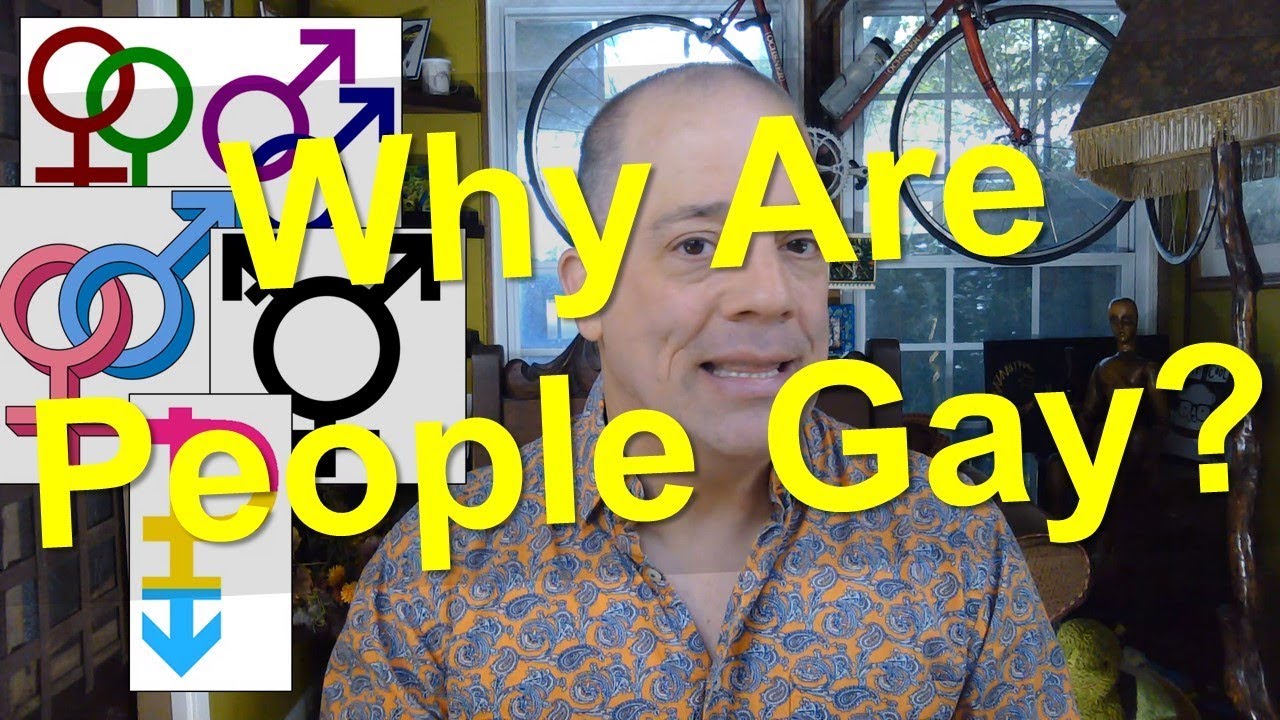Why Are People Gay?
Unfortunately, most attempts at answering the question, why are people gay, include ideologues making diatribes about three topics: 1) nature vs. nurture; 2) normal vs. abnormal; and 3) reproduction being sexual orientation’s purpose.
Rest assure, I am no ideologue and I will be making no diatribes about these three topics.
However, I am a scientist, who will be making empirically based expositions about these topics.
Besides being mean, diatribes about these topics are fundamentally flawed when initiated by the naïve question, why are people gay?
For these topics to make sense, they must be initiated by the relatively sophisticated question: Why do people have a sexual orientation?
Whether a person’s orientation is homosexual, heterosexual, bisexual or otherwise, is beside the point. The point is this, the answer to the question of why are people gay, is the same answer to the question of why are people heterosexual; or bisexual; or otherwise?
So, let’s find out why people have any sexual orientation.
For a complete transcript of this video, check out: https://medium.com/5-minutes-of-intercourse/why-are-people-gay-529901651e6c
References
Bailey, J. M., Vasey, P. L., Diamond, L. M., Breedlove, S. M., Vilain, E., & Epprecht, M. (2016). Sexual orientation, controversy, and science. Psychological Science in the Public Interest, 17, 45-101.
Jan Chaiken, Marcia Chaiken, and William Rhodes. (1994). Predicting Violent Behavior and Classifying Violent Offenders. In Understanding and Preventing Violence, Volume 4: Consequences and Control. The National Academies Press.
Copen, C., Chandra, A., & Febo-Vazquez, I. (2016). Sexual behavior, sexual attraction, and sexual orientation among adults aged 18–44 in the United States: Data from the 2011–2013 National Survey of Family Growth. National Health Statistics Reports, 88, 1-13.
Diamond, L. M. (2009). Sexual Fluidity: Understanding Women’s Love and Desire. Cambridge, MA: Harvard University Press.
Frankowski, B. L. (2004). Sexual orientation and adolescents. Pediatrics, 113, 1827–1832.
A. Ganna et al. Large genome-wide analysis of sexual orientation identifies for the first time variants associated with non-heterosexual behavior and reveals overlap with heterosexual reproductive traits. American Society of Human Genetics annual meeting, October 19, 2018, San Diego.
Gates, G. (2011). How Many People are Lesbian, Gay, Bisexual and Transgender? Williamsinstitute.law.ucla.edu.
Gillespie, B. J., Frederick, D., Harari, L., & Grov, C. (2015). Homophily, Close Friendship, and Life Satisfaction among Gay, Lesbian, Heterosexual, and Bisexual Men and Women. CUNY Academic Works.
Hamer, D., Hu, S., Magnuson, V., Hu, N., and Pattatucci, A. (1993). A linkage between DNA markers on the X chromosome and male orientation. Science, 261, 321-327.
Herdt, G., & McClintock, M. (2000). The magical age of 10. Archives of Sexual Behavior, 29, 587-606.
Kendler, K. S., Thornton, L. M., Gilman, S. E., & Kessler, R. C. (2000). Sexual orientation in a U.S. national sample of twin and nontwin sibling pairs. American Journal of Psychiatry, 157, 1843–1846.
Långström, N., Rahman, Q., Carlström, E., & Lichtenstein, P. (2010). Genetic and environmental effects on same-sex sexual behavior: A population study of twins in Sweden. Archives of Sexual Behavior, 39, 75-80.
Lehrer, J. (2006). The effeminate sheep and other problems with Darwinian sexual selection. Seed Magazine, June/July.
Meston, C. M., & Buss, D. M. (2007). Why humans have sex. Archives of Sexual Behavior, 36, 477-507.
Nguyen, C. (1993). A Linkage Between DNA Markers on the X Chromosome and Male Sexual Orientation, by Dean H. Hamer and Charles A. Thomas, Embryo Project Encyclopedia (2017-04-13). ISSN: 1940-5030
Rice, G., Anderson, C., Risch, N., and Ebers, G. (1999). Male Homosexuality: Absence of Linkage to Microsatellite Markers at Xq28. Science, 284, 665–67.
Thomeer, M. B., & Reczek, C. (2016). Happiness and sexual minority status. Archives of Sexual Behavior, 45(7), 1745-1758.
======
Subscribe to this channel
— Like us on Facebook: http://fb.me/5MIWeekly
— Follow us on Twitter @5MI_Weekly: https://twitter.com/5MI_Weekly
— Follow us on Instagram at 5MI_Weekly
— Read the Blog: http://blog.5miweekly.com/
source
